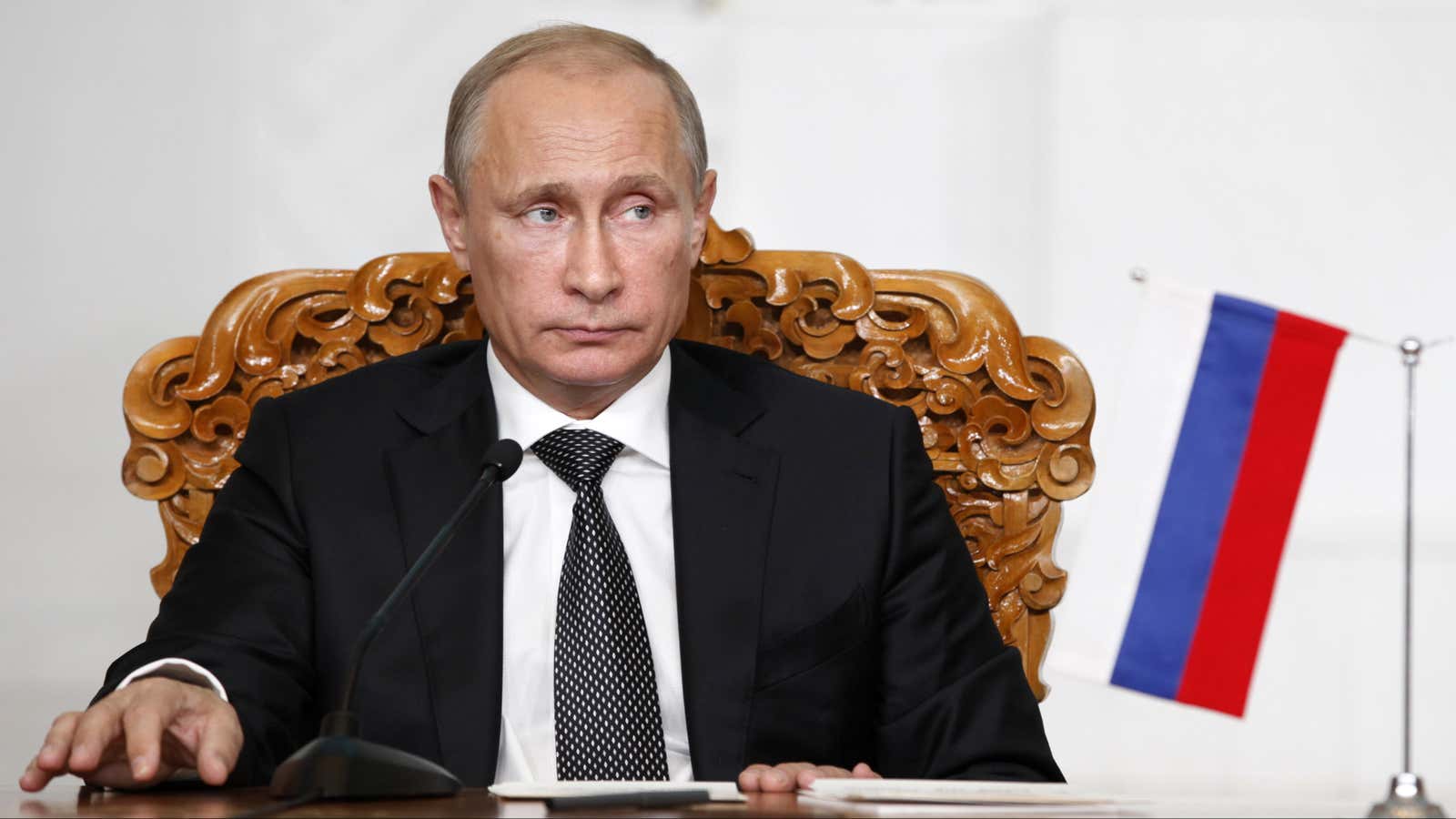With draconian new western sanctions looming today, Russian president Vladimir Putin is planning what his aides call “asymmetric” retaliation. But rather than punishing the West directly, he seems to be pushing to make Russia more economically self-reliant—while also taking care not to rile Russians who are accustomed to a wide range of western goods.
A Putin aide said Moscow will target non-agricultural items on which Europeans “are more dependent on Russia than Russia on them,” according to the Russian news agency RIA. Included on the short list for an import curb are western clothes and used cars.
But, contrary to the Kremlin’s rhetoric, those sectors are barely consequential to the West: Last year, the European Union only sold about $6 billion in clothes to Russia, according to official figures, and used cars are not even a line item in EU statistics.
Instead, Putin seems to be proceeding with previously announced plans to build up the country’s capacity to make large-volume consumer products that Russians will actually buy. He wants Russia to produce its own clothes, for example.
But cars are the larger industry by far, and it’s notable that Putin isn’t targeting new vehicles, which are largely imported (31% of the market) or assembled in Russia by foreign companies (about 50%). Sanctioning new foreign vehicles would be a far greater hit to Europe—Russia imported $28.5 billion worth last year—but depriving well-off Russians of access to new BMWs might trigger big political trouble even for someone with Putin’s sky-high approval ratings.
It’s true that used vehicles are a large business: last year, Russians bought 5.6 million of them, more than double the 2.6 million new vehicles they purchased, according to PriceWaterhouseCoopers. In going after used cars, Putin is continuing a policy of countering the country’s wholesale shift to foreign makes—in 2008, 32% of the vehicles on Russian roads were foreign; last year, the number was 50%, according to PWC.
In July, prime minister Dmitry Medvedev, Putin’s protégé, banned government officials from buying imported cars for official use. Now, if Putin proceeds with a sanction on imported used cars, it’s another step in the direction of encouraging Russians to buy domestically produced brands, and bolstering domestic automakers like AvtoVAZ.
The Kremlin has not indicated whether it has plans later to curtail the activities of foreign carmakers with assembly plants in Russia.
